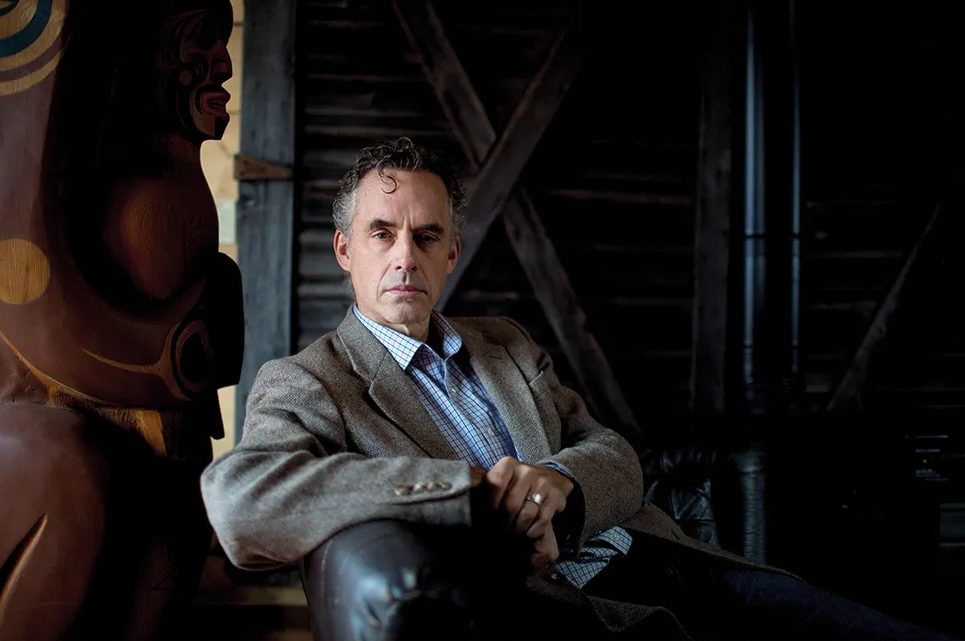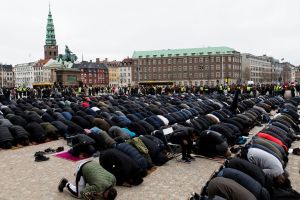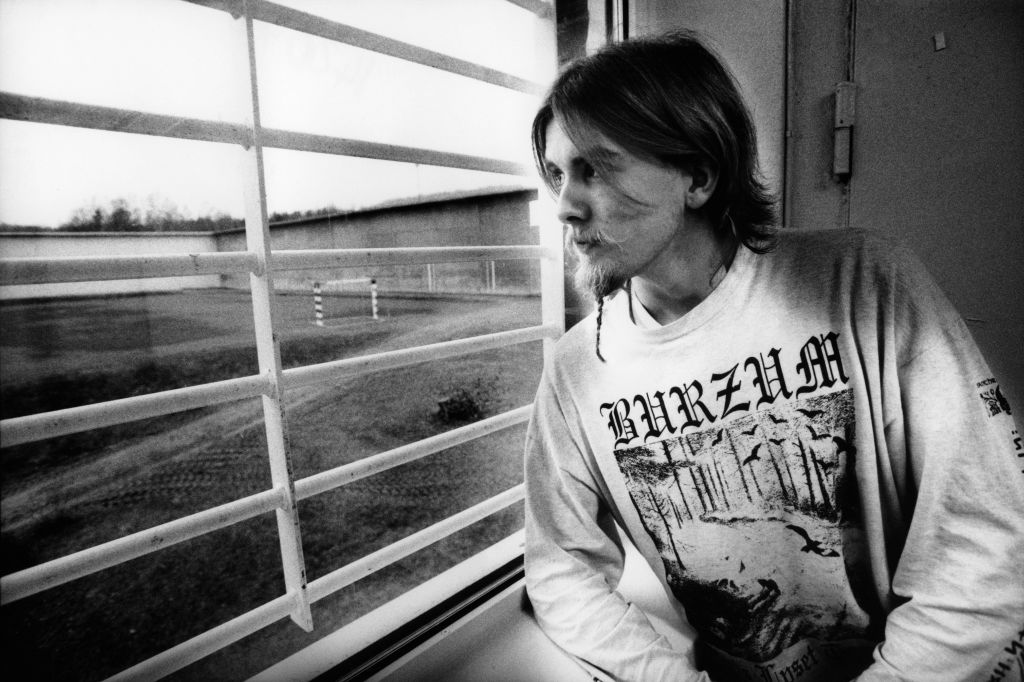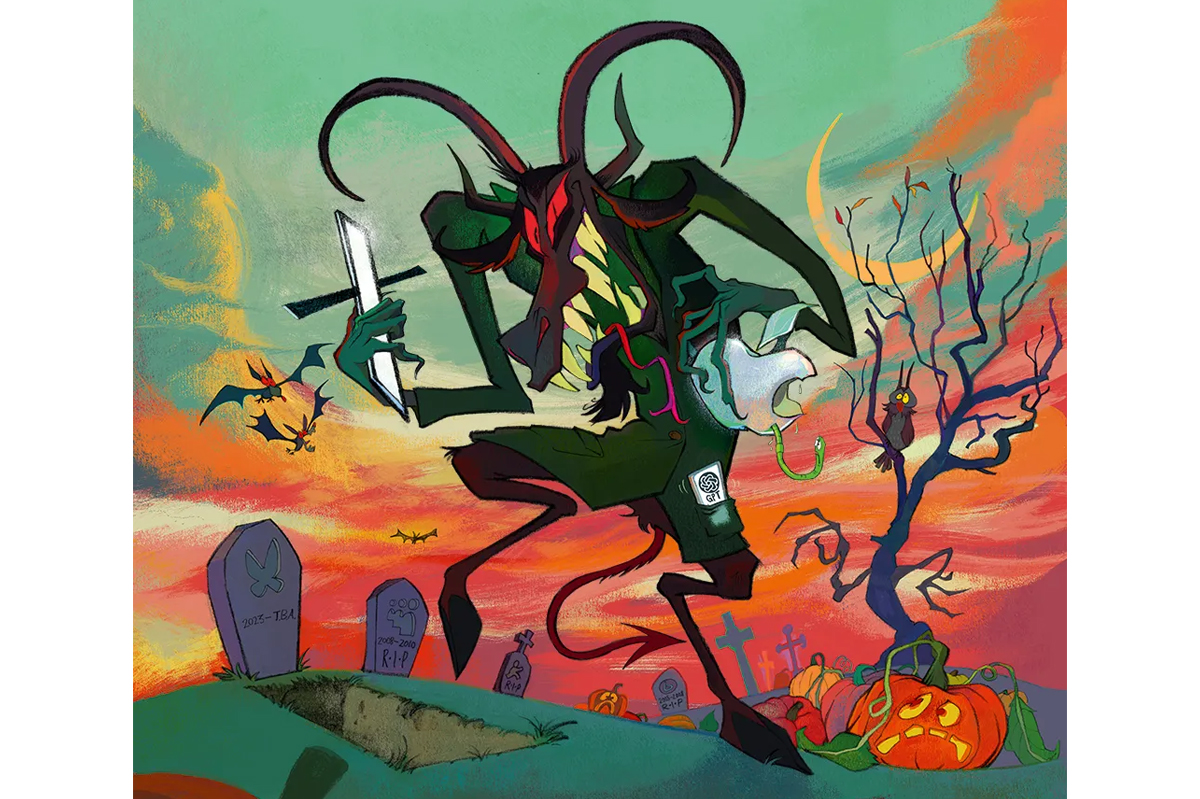Alan Isler’s novel Clerical Errors (2001) features a troubled priest who mocks the faith he has largely abandoned. “How can any rational creature not see in the story of Christ the pattern of countless pagan myths, the universal romance of the sacrificial god, his apotheosis and his rebirth?” Jordan Peterson’s new book, We Who Wrestle With God, stands this argument on its head. That core Old Testament and gospel narratives are echoed in other cultures, past or present, is hailed as a mark of biblical universality. What applies to the resurrection also covers themes including sibling rivalry (Cain and Abel), pride and overreach (Noah’s Flood), deliverance from slavery (the Exodus) and the Fall itself. These archetypes abide in our collective unconscious for good reason.
Peterson ranks as one of the world’s most contentious as well as best known public intellectuals. Despite its title, though, We Who Wrestle With God is less combative than the author’s earlier work. Many who are either cheered or outraged by the bracingly conservative medicine he has offered for western social ills may be surprised by this move to religious terrain. A Jungian psychologist by background, he is neither a preacher nor a textual scholar — nor even a professing Christian, as far as one can judge. But perhaps it is this lack of obvious credentials that gives Peterson’s biblical commentary its cut-through.
The second strand in his career is in any case less novel than it may seem. He has been expounding scripture in person and online to fast-growing audiences for several years. His YouTube seminars on the Book of Exodus — stimulating but quirky affairs, in which he tends to hog the limelight during what are meant to be group discussions — have reached an audience of millions. He can also fill vast venues for unscripted talks, displaying levels of vim far exceeding those of most church leaders. We Who Wrestle With God represents the codification of this project; a second volume devoted mainly to the New Testament will appear in due course.
Scripture forms a powerfully challenging call to humanity to grow and reform and criticise itself
What does the potency consist in? As well as being more disciplined on the page, Peterson has a sure grasp of the big picture. Fired by indignation at lazy notions that the Bible is a catalogue of Bronze Age bigotry and ignorance, he has a particular gift for drawing out the inner meaning of one story after another. In his telling, the Old Testament starts with two models: one of a creation recognized as good; the other pointing to a deep fracture spearheading the search for atonement and renewal. This leads to liberation from bondage, which means freedom of a people as well as deliverance from the self-centeredness that is sin. It includes the rejection of idols, pictured both as images of the unknowable and the pursuit of wealth or power, which the wayward follow in denial of their real duties to God and neighbor.
While fundamentalists and atheist polemicists alike often equate truth with literalism (endorsing or rejecting the text accordingly), Peterson concentrates on the game-changing implications of belief that we are made in the divine image, notwithstanding our flaws:
This is… a civilization-engendering idea, an idea that is the precondition for optimized psychological and social order alike. It is from that presumption of our implicit individual value… that we derive our infinite set of natural rights (and let us not forget, as we are so prone to, natural responsibility).
To this he appends a crucial inference: that rights and responsibilities are not bestowed on us in a social contract by an all-powerful state. They are instead what give rise to the enduring state and “which protect it from its otherwise inevitable decline into… tyranny.”
These and other insights ought to chasten those for whom “theological” mainly serves as a tag to dismiss either pedants or fantasists. We Who Wrestle With God largely skates over historical questions — whether Moses really existed, for example, or how the Old Testament’s four main strands (written at different times and reflecting distinct agendas) intersect. The book’s underlying concern centers on what thoughtful readers should cull from scripture now. If a given passage represents God as cruel or vengeful, for instance, but the wider setting makes clear that divine mercy trumps judgment, then it is context that counts.
Peterson’s allied achievement is to break the Neo-Darwinian spell. Purely instrumentalist and utilitarian explanations of human behavior won’t do. We are motivated not only by desire and appetite, but by a vision of the good. In Roger Scruton’s words: “Our form bears the marks of its peculiar destiny; it is capable of sanctity and liable to desecration; and in everything it is judged by a standard not of this world.”
So meaning matters. Though elusive, it is no mere epiphenomenon, a shifting overlay on an intrinsically meaningless material substrate, but a manifestation of what is most real. Peterson makes the point with force. “Our very physiology bears the implicit and indwelling image of the world… We are veritable microcosms, reflecting not only the deepest order of things but also the order of the spirit of things itself.” Perhaps, he adds, reductive materialism is a reflection of something worse than mere ignorance: “Maybe we insist on the deadness and intrinsic meaninglessness of the world to rationalize our unwillingness to accept the immense burden of opportunity and obligation that a true understanding… would necessitate.”
The text overall is studded with such penetrating glances at science as well as philosophy. A gallery of cultural figures from Plato to Harry Potter via Jean Piaget, George Lakoff and Mircea Eliade are also invoked. Fundamentally, though, the book offers fresh, detailed and often gripping expositions of the Torah or Pentateuch. The manuscript could have profited from a trim: it can be literally repetitive, as when Peterson quotes the same long passage from Book I of Paradise Lost twice. But the conclusions offered are anything but clotted. They might be summed up as follows. Scripture is humanly written and developed history riddled with ambiguities, dead ends and fresh starts. Nevertheless, it forms a powerfully challenging call to humanity to grow and reform and criticize itself.
Many informed Christians would accept this without a blink. Most would also go further. As well as being humanity’s foundational text, does the Bible not also rest on God’s self-revelation? Though Peterson makes clear that any answer is a matter of faith, his broader thesis will prompt a follow-up question from secularists as well as believers. Given that he is in effect signed up to Christian metaphysics, has the time not come for him to make a declaration of spiritual allegiance?
In the past he has suggested to friends that any trafficking in theology would earn him the derision of academic peers. (The comment plainly exposes a blind spot among other intellectuals eager to police “acceptable” forms of inclusion.) Matters are evidently dynamic, however. His original working title was “We Who Wrestle With Gods,” the “s” only falling away at a late stage. And he ends with three tantalizing one-sentence paragraphs:
God is dead?
No.
Deus renatus est.
The theatricality justifies itself. There is rich substance underlying it. Whether in your eyes the author ranks as prophet or provocateur, you should read this outstanding study.
This article was originally published in The Spectator’s UK magazine. Subscribe to the World edition here.

























